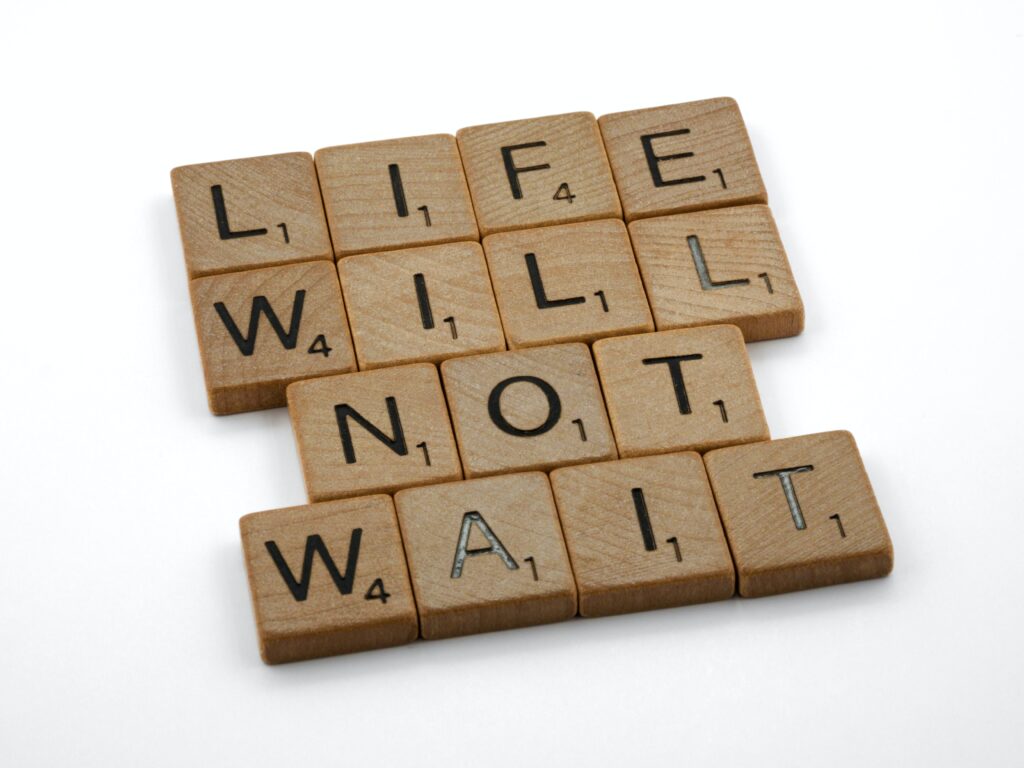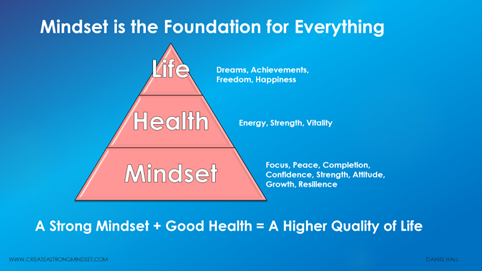You can use mini-commitments to prevent overthinking, break bad routines, save willpower, and get more done.
I had gotten home and had intended to sit down and finish some writing. Instead of writing, I had, once again, gotten sidetracked by my phone. I had just wanted to take a short break and look and see what new things I might discover.
Suddenly, it was a few hours later.
I had let myself get easily sidetracked because I wasn’t sure what or how I was going to write. In the back of my mind, I knew that I should do some work, but I let my monkey brain push me to focus on less stressful things. This internal conflict had sapped my willpower and caused me to me to waste time.
One day, I decided to make a ‘mini-commitment’ to help me break this routine.
Before getting home, I made a commitment to sit down and type just five sentences for the article I was wanting to write.
I remember feeling powerful and a sense of freedom after having used it.
I had gotten home and felt tired, and I also wasn’t sure about what or how to write. I had wanted to fall into my regular routine and take a break.
Remembering my mini-commitment, I sat down and started writing out five sentences on the article I was wanting to write. This led me to going beyond five sentences, and I completed the entire article except for the final editing.
I felt powerful because I hadn’t gotten caught up in my bad routine and the stress of what to write. By just focusing on writing 5 sentences, it helped to get me started and helped push me to get past the clutches of the monkey brain making me feel a sense of freedom.
* * *
Mini-Commitments are very simple to use.
If you want to use them, you MUST follow these two rules:
- Make them so simple you will start them.
- Do them no matter what.
Mini-commitments might seem very similar to Mel Robbins’ 5 second rule, where you push yourself to do something within 5 seconds of feeling hesitation, but they are a little different.
First, instead of focusing on hesitation at that moment, mini-commitments are made ahead of time. They can prevent you from falling into regular routines that cause you to waste time.
Second, as they are ‘commitments,’ they help strengthen your mindset. Keeping commitments, especially when the monkey brain is pushing you to do something else, will make you mentally stronger.
* * *
Mini-Commitments have a lot of benefits when you follow the two rules.
Making commitments and keeping them strengthens the mindset. As I just mentioned, when you say that you are going to do something and then do it, it helps to show your monkey brain that you are the one in control.
They help to save willpower. Your primitive brain wants you to avoid getting to work, and the logical brain is telling you to get started. This conflict uses up energy and motivation. When you have firmly committed to doing something, there is no more internal struggle about what to do; the decision has already been made.
They prevent you from overthinking things. I used to get caught up in a myriad of thoughts that would cause me to delay.
What should I write? How should I write it? Is it a good enough topic? What things should I add to the article?
I found that when I set a mini-commitment to do something that was really easy to do, such as committing to writing just 5 sentences, this simple action would stop that internal struggle that was causing me to procrastinate.
Here are some other ways I used mini-commitments:
I used them to help me break out of rumination. When I found myself getting lost in my thoughts or caught up in the past, I would find something to commit to that would push me out of that thinking and help me focus on something different. I commit to sitting down and thinking of 5 topics on which to write.
I used them to change my mood. When I caught myself being in a negative mood, I would commit to focusing on something positive: I commit to thinking of 10 wonderful things I am happy about. This is powerful because I would start to feel tired and frustrated when I wasn’t making progress with my work. By resetting my mood, it helped to move me forward more quickly.
I used them to make faster decisions and prevent overthinking. I commit to choosing one picture to use for my article in 5 minutes and sticking with it. I commit to sticking to one outline and finishing the article. This not only helped me get things done more quickly, but it also helped me to get past perfectionist syndrome.
I used them to push myself to get more done. When I was writing or exercising, I would often get to a point and tell myself that I had done enough or that I should take a break. I would make a mini-commitment to push past that stopping point. I will do 10 more. I will write another 10 minutes. I will wait 1 more hour before eating lunch.
Pushing past my limits helped me to become mentally stronger as I learned to ignore my primitive brain and do even more.
* * *
Conclusion
If you have been struggling and feel that you are not in control of your life, try using mini-commitments.
Start with small things and build up to harder things. In a short time, you will find yourself becoming mentally stronger.
I focused on using small ones to help me get started with things and to help me go further than I normally did. Over time, as I saw myself getting more done, I started to feel that I could move forward with my life. This led me to making even bigger commitments.
* * *
Be sure to sign up for my newsletter where I share more advice on how to improve and create a stronger mindset. If you have any questions, please ask them in the comment section.



